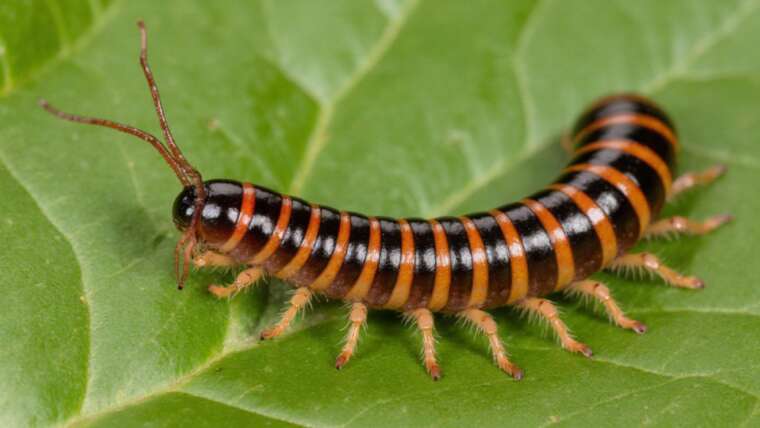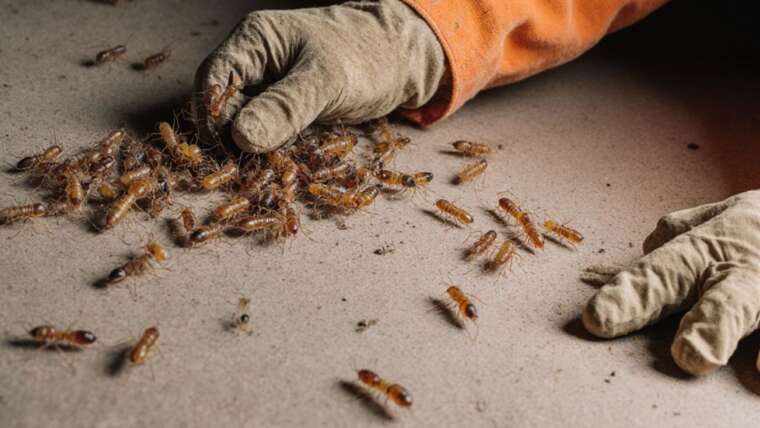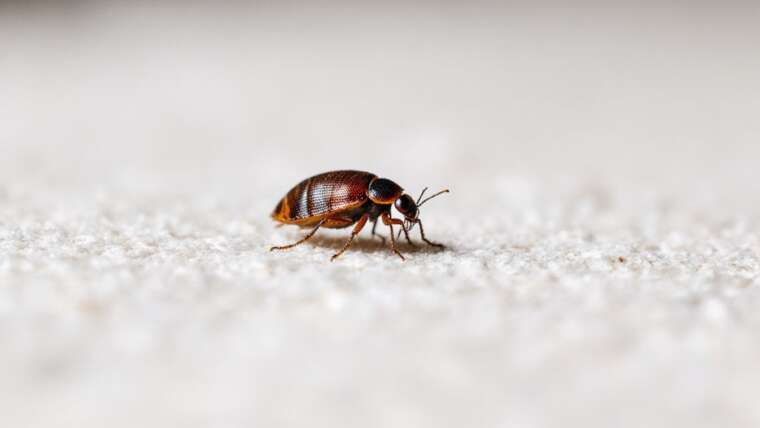Squirrels, often regarded as cute and playful, can quickly turn into pesky intruders when they invade our yards or homes. Known for their acrobatic leaps from branches and swift climbing up trees, these nimble rodents sometimes carry off our garden’s most prized possessions—our crops. In addition, their raucous antics on rooftops can lead to property damage, particularly if they find their way into attics or walls. Sadly, the costs associated with repairing such damage can reach thousands of dollars, and many insurance policies may not cover these expenses. There are numerous tactics people have utilized to deter squirrels from their properties. Keep reading to explore the best squirrel repellents and prevention methods.
What is the best squirrel repellent or deterrent?
The most effective squirrel repellent or deterrent operates by either making an area less attractive to squirrels or establishing barriers that prevent them from accessing food sources. Typically, combining various repellents and deterrents yields the best results, as they play off each other to create a more formidable defense.
Tip: Consider setting up a motion-activated sprinkler system. The sudden burst of water can surprise and deter squirrels from entering your garden.
Steel mesh
Steel mesh is a highly effective material widely used for wildlife exclusion, preventing squirrels from infiltrating unwanted spaces such as attics, eaves, or gardens. Wildlife exclusion refers to the practice of sealing off entry points to block animals from accessing specific areas. To create an impenetrable barrier against squirrels, you’ll need robust and gnaw-resistant materials. Steel mesh is ideal for this purpose, as it is both durable and weather-resistant. For instance, Terminix offers Flexi Armour, a sturdy steel mesh that complements their wildlife exclusion services.
Tip: When installing steel mesh, ensure that there are no sharp edges exposed, as this not only makes the installation safer but also prevents potential injuries to both pets and humans.
Hot sauce
Hot sauce contains capsaicin, which causes irritation when ingested, leading to a burning sensation that is unpleasant not only for humans but also for squirrels. By applying hot sauce around infested areas, you may make the environment less inviting for these rodents. It’s important to note that while hot sauce is not a squirrel killer, it can lead to an associative response where squirrels learn to avoid locations that cause discomfort. However, its effectiveness varies from animal to animal, so it is by no means a guaranteed solution. Moreover, hot sauce can potentially damage surfaces, so caution is advised when using this method.
Tip: If you decide to use hot sauce, consider mixing it with a carrier like vegetable oil, which can help disperse the sauce more evenly and decrease the likelihood of damage to surfaces.
Peppermint, coffee grounds, and other natural repellents
Natural squirrel repellents such as peppermint oil, coffee grounds, apple cider vinegar, and cloves can effectively keep squirrels at bay. Many pests, including squirrels, find these scents displeasing, which helps deter them from invading certain areas. However, the efficacy of these methods can diminish quickly, especially outdoors, where weather conditions wash away the scent. While there’s no scientific consensus on the effectiveness of these natural remedies, it’s generally accepted among experts that they can reduce squirrel activity.
Tip: To enhance the longevity of natural repellents, consider soaking cotton balls in peppermint oil and placing them in strategic spots around your garden or entryways.
Visual deterrents
Visual deterrents like fake owls can be an effective means of warding off squirrels. These decoys mimic natural predators, instilling a sense of threat in squirrels and encouraging them to steer clear of designated areas. However, the effectiveness of visual deterrents may wane over time, as squirrels can become acclimated to them and recognize them as harmless objects. For maximum effectiveness, rotate the placement of visual deterrents occasionally to keep squirrels guessing.
Tip: To amplify the visual deterrent effect, try placing reflective tape or aluminum foil near fake owls. The flickering movements in the wind can add an additional layer of realism.
Adhesive materials: Polybutenes
Polybutenes serve as a squirrel deterrent by creating a sticky surface that makes it difficult for squirrels to scale railings and buildings. As squirrels traverse this material, they may find themselves stuck, leading to a frustrating experience that encourages them to avoid the area. However, while polybutenes may be effective in providing an annoyance, they can be messy to handle and can have limited effectiveness in repelling squirrels. Additionally, as a chemical substance, misapplication can pose risks, including potential eye irritation.
Tip: If considering a sticky solution, opt for commercially available products that are designed for animal deterrence. These often come with specific application guidelines and safety measures.
Protective wraps
Using protective wraps can effectively guard trees, crops, and openings like vents and chimneys from squirrel intrusion. This hands-on approach often requires purchasing and cutting material to fit specific areas. For example, chimneys might require at least a quarter-inch mesh hardware cloth, while smaller openings may only need a half-inch cloth. However, be aware that squirrels are adept jumpers, capable of leaping up to eight feet horizontally, which may allow them to reach protected openings. Exercise caution when installing protective wraps, as working at heights can be dangerous and may require professional assistance.
Tip: Before applying wraps, check for existing nests or signs of occupancy. If you find evidence of squirrels already residing there, consult a professional to safely remove them before proceeding.
Feeling overwhelmed by squirrels? Call in the professionals
Squirrels can quickly take over both your home and garden, necessitating specialized solutions that typical DIY methods may not address effectively or safely. For a tailored approach to managing squirrel issues, consider scheduling a free inspection with Terminix. Their trained technicians can identify the specific types of intruders and their entry points, enabling them to develop a customized plan that discourages future invasions. Remember that squirrels can be unpredictable and potentially dangerous, particularly when trapped in confined spaces like attics. For your safety, enlist the help of professionals to manage wildlife and ensure your home remains secure and undisturbed.
Tip: Ask Terminix about preventative measures that can keep wildlife at bay year-round, minimizing the chances of infestations during peak seasons.





